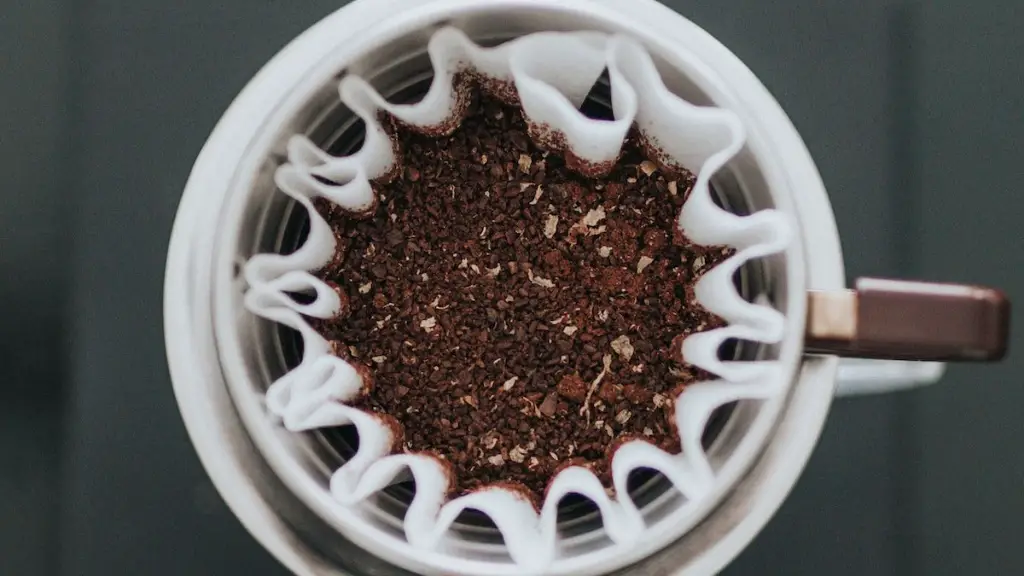Many of us reach for a cup of coffee in the morning, but often there may be indecision among those in the know about which kind to reach for – decaf or regular. An ongoing debate exists as to how much of a difference there is between decaf and regular coffee, in terms of its effects on the body, taste, and health benefits.
Decaffeinated coffee, simply known as decaf, is an attractively appealing option with potentially fewer side effects. On average, decaf coffee has 97-98% of its caffeine removed, which may be appealing to those looking to lessen their intake of caffeine. But lessening one’s intake of this stimulant is not the only reason to enjoy decaf coffee as it has other benefits.
The main difference between decaf and regular coffee is that decaf has had the majority of its caffeine removed, though small amounts remain. It has been suggested that the process used to decaffeinate coffee can actually reduce the potential health benefits, most notably the antioxidants, present in freshly roasted coffee.
The health benefits of coffee in general can include benefits for the heart, brain, and overall energy. Coffee increases energy, alertness, performance, and focus and can provide relief from headaches, fatigue, and depression. However, even through the decaffeination process, many of the health benefits are still available. Furthermore, decaf contains the same valuable antioxidants and other beneficial compounds found in regular coffee.
In terms of taste, the lighter flavor of decaf often brings out the natural flavor of the bean, as well as flavors from added creamers or syrups. Some also believe that due to the removal of caffeine, decaf may be easier to digest than regular coffee.
However, there are some potential risks that come with any amount of caffeine. It can cause an elevation in both heart rate and blood pressure in the short term. Some research indicates that there may be potential long-term risks associated with regular coffee consumption, such as an increased risk of heart disease. That is why it is important to understand both the potential benefits and risks of decaffeinated coffee.
Decaf coffee can be a great choice for those who enjoy the flavor and potential benefits of coffee but want to avoid the risks of too much caffeine in the body. There are some misconceptions and that the flavor, aroma, and health benefits are diminished when the coffee is decaffeinated. However, the truth is this isn’t the case. The process used to decaffeinate the beans, and the specific type of bean used, can have an effect on the final product, none of which should negatively affect taste.
Storage Tips
After purchasing decaf coffee, it is important to store it properly. While coffee should be stored in a dry, air-tight container to preserve flavor, temperature is also an important factor. Coffee should be stored in a cool and dark place, such as a pantry or cupboard. Keeping it in the refrigerator or freezer can cause the coffee to absorb moisture, which may alter the flavor.
The shelf life of decaf coffee is similar to all other types of coffee. Ground coffee, either regular or decaf, will last for up to one month once it is opened, while whole-bean coffee can last for up to two months. If stored in a freezer, the coffee can last for up to six months. It is also important to check for an expiration date on the packaging, as older coffee may show signs of staleness or even mold.
Hydration
Coffee and other caffeinated drinks can contribute to dehydration, as they can contribute to your daily water requirement. Caffeine is a diuretic, which means as it is released, it pushes out fluids through the kidneys. This can lead to dehydration if enough water is not taken in to replace the fluids expelled. It is recommended to drink 8-12 8-ounce glasses of water like other caffeinated beverages.
Decaf coffee can therefore be a great replacement for regular coffee for those who want to avoid the side effects of too much caffeine, but still crave the flavor and potential benefits that coffee has to offer. It is important to practice caution when drinking decaf coffee, as the small amounts of caffeine that still remain can still cause side effects like headaches and increases in heart rate if too much is taken in. Additionally, it is important to understand how to properly store and hydrate with decaf coffee, so as to get the most out of it.
Caffeine Content
Although most of the caffeine has been removed from decaf coffee, traces of it can still remain. It is important to understand how much caffeine is present in decaf coffee, so as to make an informed decision when drinking it. The amount of caffeine varies according to the type of coffee bean and the methods used to decaffeinate them.
On average, an 8-ounce cup of decaf contains only 2-12 mg of caffeine, in comparison to regular coffee, which contains 95-200 mg per cup. However, some brands may be as low as 1-5 mg of caffeine per cup, while others may be as high as 12-13 mg. It is important to read the labels of decaf coffee before buying and consuming it.
Espresso-Based Drinks
Espresso-based drinks, such as cappuccinos and lattes, are a popular way to consume coffee. Espresso is a concentrated form of coffee that is made using pressurized water, and each shot contains higher amounts of caffeine than regular brew. However, decaf espresso is still an option, as most coffee shops will offer the option of decaf versions of their espresso-based drinks. Just be sure to ask for the decaf version, to avoid too much caffeine in the body.
Decaf espresso can be a great way to enjoy espresso-based drinks with fewer side effects. Cappuccinos, lattes, espresso macchiato, and any other espresso-based drink can be requested with decaf shots rather than regular espresso. Decaf espresso-based drinks can also still benefit from the potential health benefits that coffee has to offer.
Available Varieties
Decaffeinated coffee is available in various forms, each of which is decaffeinated using different methods. Not only is decaf available in the form of regular coffee, but it is also available in pod, or K-cup form, as well as in ground or instant forms. Different types of beans, such as arabica, robusta, and liberica, can also be found in decaffeinated forms.
The methods used to decaffeinate coffee are often referred to as “chemical-free,” meaning that the process does not use any chemicals during the decaffeination, but rather relies solely upon water and mechanical pressure. There are also many decaffeinating processes that use some form of chemical solution to remove the caffeine from the coffee. These chemicals include ethyl acetate, methylene chloride, and CO2.
No matter the brand, variety, or method used to decaffeinate it, the important thing to keep in mind is that there are still potential benefits to drinking decaf coffee. Overall, those with a love for coffee can still enjoy their favorite beverage, and with knowledge and choose their desired type, be it regular or decaf. By understanding how to store, hydrate, and understand the levels of caffeine in decaf, coffee drinkers can still get the most out of their coffee, without the side effects.




